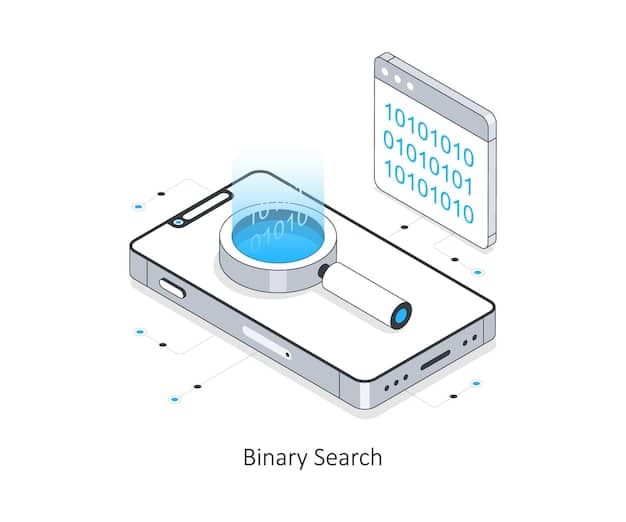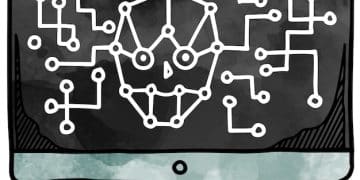Solana Audits: Securing the Ecosystem and Spotting Red Flags

Solana ecosystem audits are crucial for identifying vulnerabilities in smart contracts, ensuring the security and reliability of decentralized applications (dApps), and safeguarding users’ assets from potential exploits within the Solana blockchain.
The Solana ecosystem is burgeoning with innovative decentralized applications, but along with this growth comes the risk of vulnerabilities in smart contracts. Understanding the importance of Solana Ecosystem Audits: Understanding the Importance of Smart Contract Security and Identifying Red Flags is paramount to ensure the platform’s security and user trust. Let’s delve into why these audits are essential and what red flags to watch out for.
Understanding the Solana Ecosystem and Smart Contracts
Solana, known for its high speed and low transaction costs, has become a popular blockchain for deploying decentralized applications (dApps). These dApps rely on smart contracts, self-executing agreements written in code, to automate processes and enforce rules. However, these contracts are susceptible to bugs and vulnerabilities, making security audits critically important.
What are Smart Contracts?
Smart contracts are the building blocks of decentralized applications. They automate the execution of an agreement so that all parties can be immediately certain of the outcome, without any intermediary’s involvement.
Why are Audits Necessary for Smart Contracts?
Audits identify potential vulnerabilities that could be exploited by malicious actors. A single flaw in a smart contract can lead to significant financial losses, data breaches, or disruptions of service. Regular audits help mitigate these risks.

Let’s explore key reasons why smart contract security is essential:
- Preventing Economic Losses: Audits can detect bugs that may lead to theft of funds or manipulation of contract functionality.
- Ensuring Regulatory Compliance: Many jurisdictions have stringent requirements for financial applications, and audits help confirm compliance.
- Maintaining User Trust: Transparent security measures build confidence among users who rely on the dApps.
- Avoiding Reputational Damage: Security breaches can severely damage a project’s reputation, potentially leading to its downfall.
In summary, understanding the role and necessity of smart contracts is a critical component of grasping the importance of Solana ecosystem audits. Moving forward, we will explore how these audits function, and what the various key warning signs are in the auditing process.
The Importance of Smart Contract Security in Solana
Given the prevalence of decentralized finance (DeFi) applications on Solana, securing smart contracts is not just an option—it is a necessity. The high transaction throughput of Solana can amplify the impact of a single exploit, making security a top priority. The purpose of these audits is to protect digital assets and ensure user trust.
Real-World Examples of Smart Contract Exploits
There have been numerous instances of smart contract exploits across different blockchain platforms. These incidents underscore the need for rigorous audits. Some examples include:
One instance of a smart contract exploit includes the Poly Network hack in 2021, where over $600 million was stolen due to a vulnerability in its smart contracts. Although the funds were eventually returned, it highlighted the catastrophic potential of unaudited or poorly audited contracts.
The Economic Impact of Security Breaches
The financial implications of security breaches in the Solana ecosystem can be far-reaching. Beyond direct economic losses from stolen funds, breaches can:
- Result in a drop in the value of the associated cryptocurrency.
- Lead to costly legal and regulatory interventions.
- Erode investor confidence and hinder future growth.
Smart contract security within Solana contributes to the creation of trust, ensures regulatory compliance, and safeguards against potentially devastating consequences.
The Smart Contract Audit Process
The smart contract audit process involves a thorough analysis of a contract’s code to identify potential vulnerabilities, bugs, and inefficiencies. These audits are usually conducted by third-party security firms specializing in blockchain technology. It’s a process that requires time and dedication, making it a crucial element of building effective security.
Stages of a Typical Smart Contract Audit
An audit typically involves several stages, each focusing on different aspects of the contract.
- Requirements Gathering: Auditors work with the development team to understand the contract’s intended functionality and design specifications.
- Code Review: Auditors manually review the contract code, looking for common vulnerabilities and adherence to best practices.
- Automated Analysis: Tools are used to automatically detect potential issues such as integer overflow, reentrancy attacks, and gas inefficiencies.
- Testing: Auditors perform unit tests and integration tests to verify that the contract behaves as expected under various conditions.
- Reporting: The audit firm provides a detailed report of findings, including recommended fixes and mitigation strategies.
Tools and Methodologies Used in Audits
Auditors use a combination of manual and automated tools to assess smart contract security. These may include:
- Static Analysis Tools: Such as Slither and Mythril, to detect potential vulnerabilities without executing the code.
- Dynamic Analysis Tools: Which involve executing the code in a controlled environment to observe its behavior.
- Formal Verification: Mathematical techniques to prove that the contract meets its specifications.
The audit process is pivotal in discovering problems early, thereby decreasing the likelihood of exploits. By carefully reviewing code and employing advanced testing methods, auditors ensure contracts are reliable, secure, and efficient.

Key Red Flags in Smart Contract Audits
During a smart contract audit, there are several red flags that auditors look for. These indicators can signal deeper problems within the contract, posing significant risks to its functionality and security. Spotting these red flags are an essential step in ensuring the security of the Solana ecosystem.
Common Vulnerabilities to Watch Out For
Several common vulnerabilities are targets for malicious actors seeking to exploit smart contracts. Identifying these can lead to greater security.
Let’s examine the following:
- Reentrancy Attacks: This occurs when a contract calls another contract before completing its execution, potentially leading to a loop.
- Integer Overflow/Underflow: Which happens when arithmetic operations result in values larger or smaller than the data type can hold.
- Denial of Service (DoS): Attacks that flood the contract with invalid transactions, preventing legitimate users from interacting with it.
- Timestamp Dependence: Reliance on block timestamps can be manipulated by miners or validators.
How to Interpret Audit Reports
Reading and understanding audit reports is essential for both developers and stakeholders. The report should clearly outline:
- Severity of Issues: Categorizing vulnerabilities based on their potential impact (e.g., critical, high, medium, low).
- Detailed Explanations: Providing context and explaining the root cause of each vulnerability.
- Recommendations: Suggesting specific steps to remediate vulnerabilities, including code changes and testing strategies.
Addressing these red flags significantly elevates the security and functional integrity of the smart contracts within the Solana ecosystem.
Best Practices for Securing Solana Smart Contracts
Securing Solana smart contracts requires a multi-faceted approach that includes following coding best practices, conducting thorough audits, and implementing ongoing monitoring and incident response plans. These best practices help minimize risks and improve system reliability.
Coding Best Practices
Adhering to coding best practices is fundamental to prevent vulnerabilities in the first place. These practices may include:
- Using Secure Libraries: Leveraging vetted libraries and frameworks that have built-in protection against common vulnerabilities.
- Following the Principle of Least Privilege: Giving contracts only the minimum necessary permissions to perform their functions.
- Implementing Input Validation: Sanitizing and validating all inputs to prevent injection attacks and unexpected behaviors.
Incorporating Continuous Monitoring and Incident Response
Even with the best security practices, vulnerabilities can still slip through. Implementing continuous monitoring and incident response plans can help mitigate the impact of security breaches.
Consider the following strategies:
- Real-Time Monitoring: Track contract activity for suspicious patterns and anomalous behavior.
- Automated Alerts: Set up automated alerts to notify administrators of potential incidents.
- Incident Response Plan: Develop a clear incident response plan that outlines step-by-step procedures for addressing security breaches.
Implementing these best practices, smart contracts can be fortified against threats, building a foundation of trust and security within the Solana Ecosystem.
The Future of Smart Contract Audits in Solana
As the Solana ecosystem continues to evolve, the future of smart contract audits will be shaped by technological advancements, emerging standards, and increased regulatory scrutiny. Embracing these changes is essential for sustaining a secure and reliable platform.
Technological Advancements in Auditing
New technologies, such as artificial intelligence (AI) and machine learning (ML), are beginning to play a role in smart contract audits. These technologies can automate some aspects of the audit process, making it faster and more efficient. Potential advancements include:
- AI-Powered Code Analysis: AI algorithms can be trained to identify complex vulnerabilities that may be missed by human auditors.
- Automated Test Generation: Machine learning models can generate test cases that cover a wide range of potential scenarios.
How Regulation May Impact Smart Contract Security
Increased regulatory scrutiny is likely to drive changes in how smart contract security is approached. Regulatory bodies may impose stricter requirements for:
- Audit Frequency: Requiring regular audits as a condition of operating within the ecosystem.
- Audit Standards: Defining specific standards and methodologies for conducting audits.
- Liability: Assigning liability for security breaches to developers, auditors, or platform operators.
Remaining proactive, embracing emerging technologies, and collaborating with regulatory entities are essential steps in the future of smart contract audits.
| Key Aspect | Brief Description |
|---|---|
| 🛡️ Importance of Audits | Essential for identifying smart contract vulnerabilities. |
| ⚠️ Key Red Flags | Common vulnerabilities like reentrancy and integer overflow. |
| ✅ Best Practices | Secure coding, monitoring, and incident response. |
| 🔮 Future Trends | AI-driven audits and stricter regulation. |
Frequently Asked Questions
▼
Smart contract audits are crucial because they identify potential vulnerabilities that could lead to financial losses or data breaches. Solana’s high transaction throughput amplifies the impact of these vulnerabilities, making audits indispensable for securing assets and maintaining user trust.
▼
Common red flags include reentrancy attacks, integer overflows, denial of service (DoS) vulnerabilities, and timestamp dependence. Auditors look for these to protect contracts from exploitation.
▼
Smart contracts should be audited before deployment and after any significant updates to their code. Regular audits ensure ongoing security.
▼
Auditors use static analysis tools like Slither and Mythril to detect potential vulnerabilities. They also use dynamic analysis tools to execute code in controlled environments and verify its behavior and mathematical techniques to prove that the contract meets its specifications.
▼
Best practices include adhering to secure coding standards, leveraging vetted libraries, implementing thorough input validation, and incorporating continuous monitoring and incident response plans.
Conclusion
In conclusion, Solana Ecosystem Audits: Understanding the Importance of Smart Contract Security and Identifying Red Flags is pivotal for fostering trust within the Solana network and safeguarding digital assets. By embracing coding best practices, conducting diligent audits, and employing advanced monitoring techniques, Solana can maintain its position as a leading secure and efficient blockchain platform.





